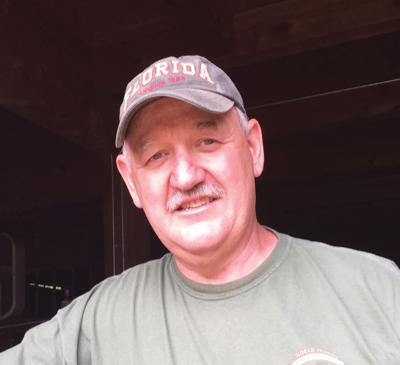I started to write this piece 40 years ago when I first began keeping bees at my home in Stowe. I remember buying and putting the first bees in my hives. It was all so new to me. Every year brought a different story. Some years they thrived, while other years entire hives would die off. While I learned more about beekeeping each year, it was a long time before I realized that bees in the wild have managed quite well without me for hundreds of years, and that it was more about Mother Nature and less about me.
Maybe I thought I was superior to them, or perhaps I was just being self-centered, wanting to be sure my own fruit trees and gardens were well pollinated. And, of course, I was taking a little honey to sweeten my own table and my ego as I gave some away to friends.
I had been thinking of the bees as something that I tended. I wasn’t seeing them in the bigger scheme of things of which I was not in charge.
The truth may be that the bees were trying to tell me things in those early years. When I could finally step back and let them have their say, I saw them as a reflection of the natural world we live in. The ebb and flow of bee colonies tells us of weather patterns, bloom times, and the health of the local environment. Honey produced by a hive is as specific to soil and place as fine wine.
As I grew older I questioned more, as I am questioning now. Was my getting started with bees some kind of divine intervention, or nature’s way of planting seeds to grow when they need to? Whatever it was, the seeds are now sprouting.
It is with growing frustration that I feel pain for the astronomical losses in the world’s honeybee population. I feel bad for the bees, but more so, I am outraged at mankind as we pour tons of fertilizer, pesticides, insecticides and who knows what on our land and into our rivers and streams. We have lost sight of our connectedness. Do we want lush, green lawns and cheap produce at the cost of the honeybee population?
Bees pollinate two-thirds of the food on our plates. If we no longer have bees, two-thirds of our plate will be empty. Can you imagine going to your supermarket to find that the produce and meat aisles are no longer there?
It is not unreasonable to assume that mankind may die without the bees. What is it going to take to make all of us be proactive about this problem and see it as something we have a part in? Beekeepers are doing what we can to see that this doesn’t happen. We must all help.
I have worked on many farms while growing up, and have the deepest admiration for farmers as they work tirelessly putting food on our tables. As farmers are under more and more pressure to feed our ever-growing population and getting less in payment for it, they have to be mindful of the almighty dollar. It has become cheaper for them to use chemical fertilizers and weed and pest controls to maximize production and assure blemish-free crops. Even backyard gardeners have been using more product per acre than ever before. After all, if a little is good, more is better.
I have done plenty in my own lawn and gardens to do Mother Nature harm. One might say I have to do better. No, I say we have to do what is right. Forgive ourselves and pray it’s not too late.
We can all make better choices and support better farming and gardening practices right in our own back yards. We owe it to ourselves, our children, and generations to come to keep Mother Nature in balance and beautiful.
The following is a poem I call “Mother Nature,” which I wrote in 1968.
Mother Nature how can you bear
The trash the garbage the polluted air.
How can you harbor within your arms
All of man’s junk as it only harms.
Mother Nature as man is man
How can we keep from polluting the land.
Why must it be as we better our lives
We dump on you constantly causing us strife.
My dear Mother Nature is it God’s solution
That man must die by his own pollution?
Ernest Eldred is a longtime resident of Stowe. He is a member of the Lamoille County Beekeepers Club, which welcomes the public and holds monthly meetings and classes for beekeepers old and new. Check Lamoille County Beekeepers Club on Facebook for meeting times and places.




















(0) comments
Welcome to the discussion.
Log In
Keep it clean. Please avoid obscene, vulgar, lewd, racist or sexual language.
PLEASE TURN OFF YOUR CAPS LOCK.
Don't threaten. Threats of harming another person will not be tolerated.
Be truthful. Don't knowingly lie about anyone or anything.
Be nice. No racism, sexism or any sort of -ism that is degrading to another person.
Be proactive. Use the "Report" link on each comment to let us know of abusive posts.
Share with us. We'd love to hear eyewitness accounts, the history behind an article.